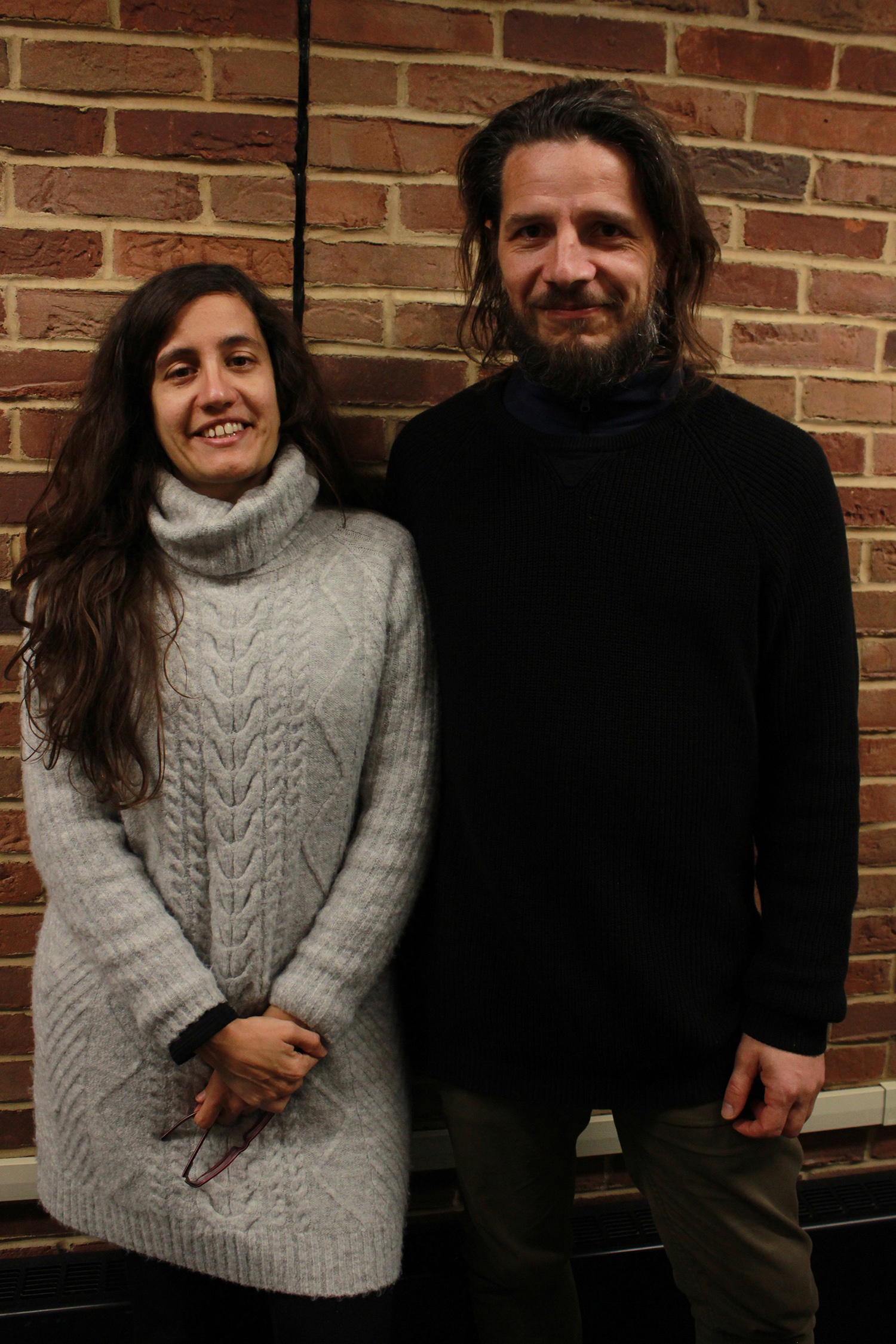A large portion of the Goshen College student body has never dared to step foot into the confines of Goshen College’s Mennonite Historical Library, located on the third floor of the Good Library. But while the archives may only serve a select few students in their time at GC, they are a remarkably important part of the research of two Argentine anthropologists, Agustina Altman and Alejandro López, from the University of Buenos Aires in Buenos Aires, Argentina.
The pair will be staying at GC from Jan. 28 to March 5.
Altman has a Ph.D. in anthropology and currently studies the connection between evangelical aboriginal women and the process of religious change. López holds both a Ph.D. in anthropology as well as a bachelor’s in astronomy, a combination that has allowed him to observe the connections between the spirituality of peoples and how they look at the skies. He is also on Argentina’s National Research Council.
Altman and López are currently studying a group of indigenous peoples in the Argentine Chaco, a region in northern Argentina and one of the country’s poorest. According to Altman and López, the people of the Argentine Chaco had been hunter gatherers for much of their history before the Argentine government began to interfere with them in the late 19th and early 20th centuries.
Since then, the indigenous peoples of Chaco have been locked in legal battles with the government over their rights to the land and have been urged by the government to settle and farm the land for little to no pay. “They often didn’t have any way of surviving,” said López.
Although missions from other denominations had already been working in the area, Mennonite missionaries first arrived in the Argentine Chaco in 1944. According to Altman, unlike many of the other missionary groups, the Mennonites went to communities where no other groups of missionaries had been. They did this as to not conflict with other missionaries and to be able to reach different populations.
“One aspect of the Protestant and Mennonite missions is that they’re not associated with the state. They in some ways function as a counter-power to the state and help them fight abuses of power,” said López.
“It’s connected to the idea in Mennonite history that martyrdom is a very important issue… and to not participate in war. The missions are seen as a new form of sacrifice and a connection to Christ. It’s a connection to the Mennonite ancestral way,” López said.
The handful of Mennonite missionaries were pivotal in the translation of biblical texts into indigenous languages, as well as in the communication between the communities and the Argentine government. “They didn’t have many people but they travelled a lot, and they had a huge impact,” said Altman.
Moreover, the Mennonite missionaries facilitated the founding of local churches run by members of the indigenous communities. Both Altman and López say that this autonomy has been crucial to the health of those communities.
And while the missionaries left decades ago, their work continues to have an impact on the people of the Argentine Chaco, where Argentine families now continue what the Mennonite missionaries started. “They send reports back to the Mennonite community, and [the communities] receive some financial support,” they said.
John Roth, professor of history at GC, learned about Altman and López’s research two years ago when he found an article by Altman online. Roth became immediately interested and reached out to her via email. “I took particular interest because work among indigenous groups marked a shift in terms of how Mennonites thought about missions in the sense that there had to be great attentiveness to cultural context and world view,” said Roth.
Roth was able to draw from the Schafer-Friesen Research Fund in order to bring Altman and López to Goshen, where they will be researching documents relating to the original missions located in the Mennonite Historical Library and The Archives of the Mennonite Church USA in Elkhart. “We are first of all searching the archives and the sources because the materials from the missionaries are here and not in Argentina. To learn about them you need to learn from these sources.”
While the two are here to investigate the impact that the Mennonite missionaries had on the indigenous communities in the Argentine Chaco, they are also equally interested in the impact that the people of the Argentine Chaco have had on the American missionaries and their local communities. “We’re also interested in making connections with the missionary families to see the impact of the missions on them. People don’t usually look at it this way. We want to look to see how these missions change the way people approach Christianity in the USA.”
Altman and López will be conducting interviews of several of the surviving missionaries, many of whom live in the Goshen area. “We’re having our first interviews on Friday,” said López.
So far, the pair have enjoyed their time in Goshen, minus the polar vortex. “It’s summer right now in Argentina, so that was a little hard,” said Altman. “It’s a wonderful university, and all the people have been very welcoming,” López said.



